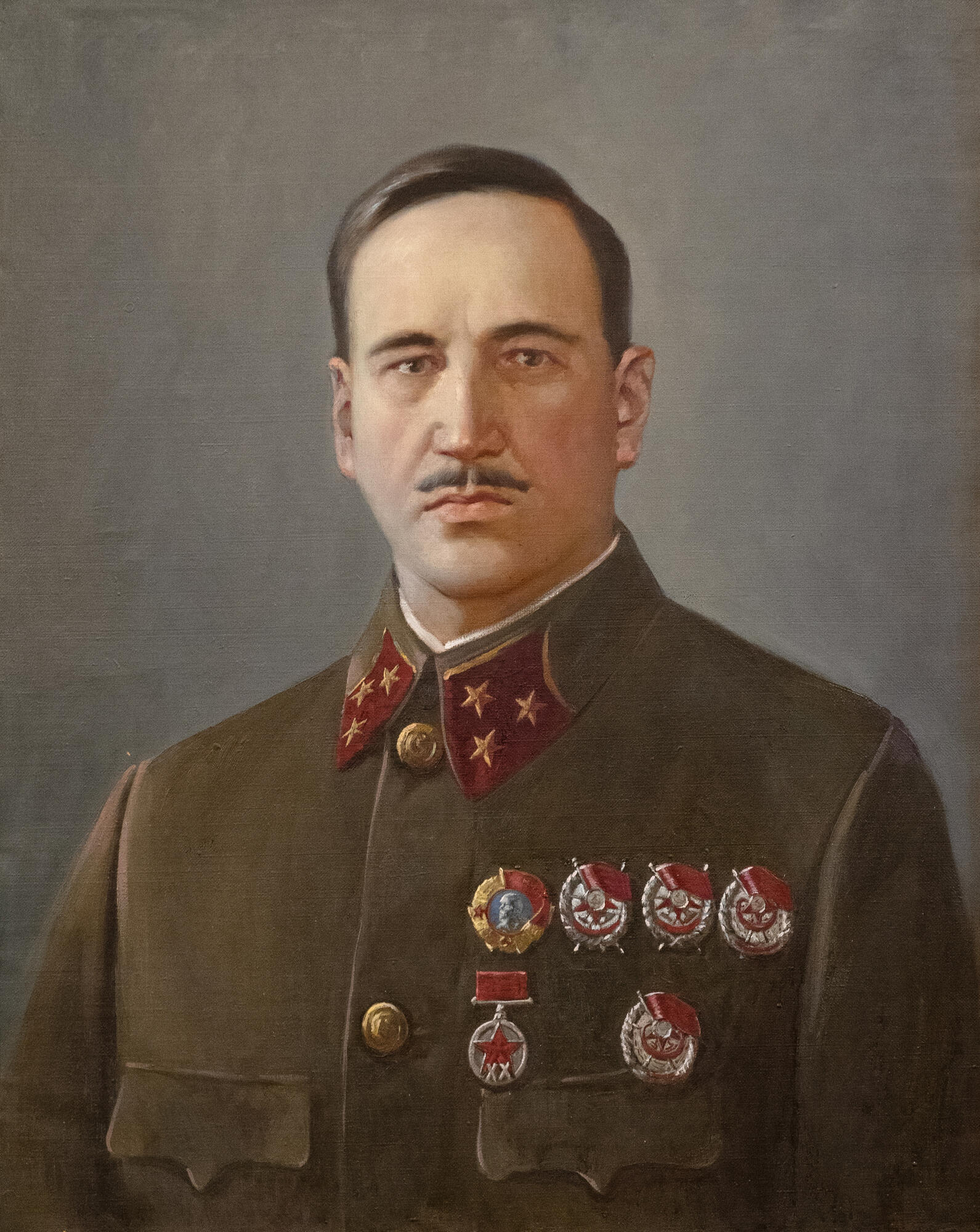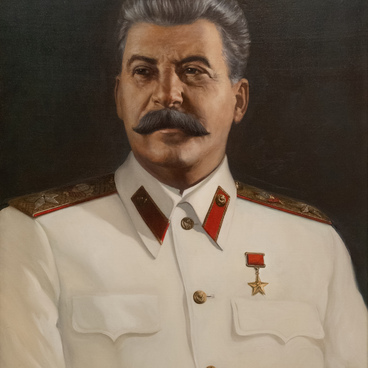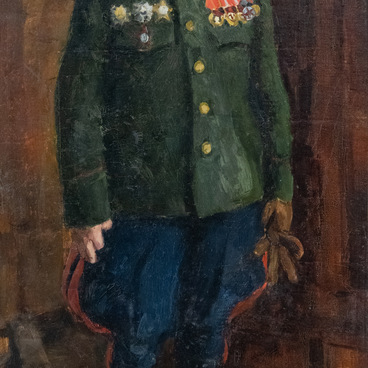The exhibition titled “The Feat of the Army” is dedicated to famous Soviet military commanders. The exhibition includes the portrait of Lieutenant General Mikhail Yefremov created by Yekaterina Kamynina, a painter from Tula and a member of the Artists Union of Russia.
Mikhail Yefremov was a legendary military commander, celebrated for his bravery and courage. Even in the most dangerous situations, he never abandoned his soldiers. Mikhail Yefremov was born on March 11, 1897, in Tarusa, Kaluga Governorate. In 1915, he was conscripted into the Imperial Russian Army and participated in World War I. In 1918, he enlisted in the Red Army and fought in the Russian Civil War. During the Civil War, he was awarded the Order of the Red Banner and two Orders of the Red Banner of the Azerbaijan SSR. In 1920, Yefremov graduated from Higher Military Courses. In 1927 and 1928, he was a military advisor to the Government of China. After returning to Soviet Russia, he was appointed commander of a rifle division. Yefremov also attended courses of the supreme command staff of the Red Army and later graduated from the Tolmachev Military-Political Academy. Between 1931 and 1937, he commanded infantry corps. He also studied at the Frunze Military Academy. Between 1937 and 1940, Yefremov was the commander of a military district. In January 1941, he was appointed First Deputy of the Inspector General Infantry Corps of the Red Army.
In the beginning of the Great Patriotic War, Mikhail Yefremov commanded an army, then the Soviet Central Front, and then an army once again. In October 1941, he was appointed commander of the 33rd Army. That month, the army suffered heavy losses and was not able to make use of the strong reinforcements. In early December, the enemy attempted to break through the sector of the 33rd Army.
During the Rzhev-Vyazma operation, around ten thousand soldiers of the 33rd Army together with their commander were cut off from the other forces. Marshal Georgy Zhukov ordered the troops to retreat in the direction of Kirov, which would force them to take a 180-kilometer-long march. Instead of that Yefremov decided to try and break through using the shortest route. The Germans detected the maneuver and destroyed the column. Mikhail Yefremov committed suicide to avoid being taken prisoner.
Mikhail Yefremov was a legendary military commander, celebrated for his bravery and courage. Even in the most dangerous situations, he never abandoned his soldiers. Mikhail Yefremov was born on March 11, 1897, in Tarusa, Kaluga Governorate. In 1915, he was conscripted into the Imperial Russian Army and participated in World War I. In 1918, he enlisted in the Red Army and fought in the Russian Civil War. During the Civil War, he was awarded the Order of the Red Banner and two Orders of the Red Banner of the Azerbaijan SSR. In 1920, Yefremov graduated from Higher Military Courses. In 1927 and 1928, he was a military advisor to the Government of China. After returning to Soviet Russia, he was appointed commander of a rifle division. Yefremov also attended courses of the supreme command staff of the Red Army and later graduated from the Tolmachev Military-Political Academy. Between 1931 and 1937, he commanded infantry corps. He also studied at the Frunze Military Academy. Between 1937 and 1940, Yefremov was the commander of a military district. In January 1941, he was appointed First Deputy of the Inspector General Infantry Corps of the Red Army.
In the beginning of the Great Patriotic War, Mikhail Yefremov commanded an army, then the Soviet Central Front, and then an army once again. In October 1941, he was appointed commander of the 33rd Army. That month, the army suffered heavy losses and was not able to make use of the strong reinforcements. In early December, the enemy attempted to break through the sector of the 33rd Army.
During the Rzhev-Vyazma operation, around ten thousand soldiers of the 33rd Army together with their commander were cut off from the other forces. Marshal Georgy Zhukov ordered the troops to retreat in the direction of Kirov, which would force them to take a 180-kilometer-long march. Instead of that Yefremov decided to try and break through using the shortest route. The Germans detected the maneuver and destroyed the column. Mikhail Yefremov committed suicide to avoid being taken prisoner.


